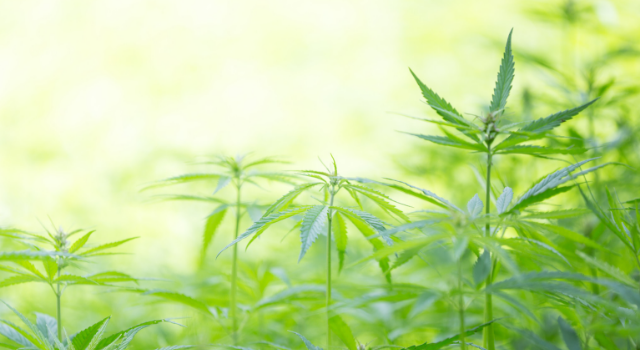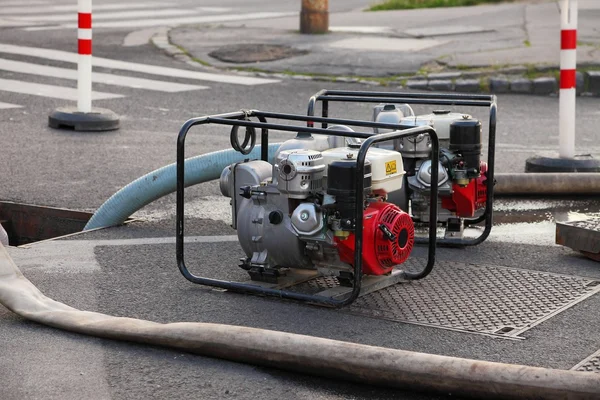9 Impressive Environmental Benefits of Hemp

Hemp and CBD might hot topics lately, but growing hemp is nothing new. People have been cultivating this plant since 8000 B.C.
Most of us are aware of the many health benefits of hemp as a source of CBD, but the perks of this amazing plant stretch far beyond that.
There’s an overwhelmingly positive relationship between hemp and the environment too. Here’s why.
- Hemp is a Versatile Crop
Cultivated hemp is commonly called industrial hemp and it’s widely used in numerous industries. These are just some of the things that people are making from hemp nowadays:
- Non-toxic fabrics with no chemical residue
- Cosmetics
- Plastic substitutes
- Hemp seeds as a protein-rich nutritional supplement
- Fire-resistant textiles
- Pet food and bedding
How does this benefit the environment? Simply put, thanks to hemp’s many other eco-benefits, the more we use hemp instead of other substances, the better.
In total, there are over 25,000 different things you can make from hemp. Every one of them is 100% recyclable.

- Hemp Products are Sustainable
Hemp is fast-growing and thrives in a variety of climatic conditions. It’s ready for harvest within four months of sowing and has a long growing season.
Since hemp plants grow close together, they leave little space for weeds to grow. The dense canopy of leaves in a hemp plantation also blocks sunlight and deters weed growth.
Thanks to this, hemp’s an excellent replacement for non-organic cotton which needs an abundance of pesticides and insecticides to thrive.
Nothing goes to waste with hemp. Manufacturers can use every part of the hemp plant to create something useful.
Once the crop’s harvested, we use hemp seeds in food, and the flowers are great for creating cosmetics.
As seed certification programs become more prevalent, farmers will soon see even better hemp yields than at present.
- Hemp is a Source of Clean Energy
One of the most environmentally important uses for hemp is as a source of biofuel.
Hemp biodiesel, charcoal, ethanol, or methanol are environmentally-friendly alternatives to fossil fuels. When you burn biomass fuels, like these ones created from hemp, less carbon dioxide’s released into the atmosphere.
The cherry on the top is that hemp yields more biomass fuels per acre than anything else on Earth.
- No Pesticides Required
Hemp naturally resists pests, so farmers needn’t spray any pesticides and herbicides on their crops.
Hemp needs very little fertilizer too, since it’s leaves fall to the ground and feed the soil around it.
- Hemp Helps Conserve Forests
Hemp is a sustainable, environmentally-friendly, and satisfactory replacement for wood pulp. The lignin content of hemp is low compared to wood, so it’s easier to turn into pulp.
The result is a light-colored pulp that doesn’t need chlorine bleaching which releases toxic dioxin into the atmosphere.
Thanks to this, hemp is a much better option for making paper. One acre of hemp produces the same amount of paper as four acres of trees.
In the construction industry, fiberboard made from hemp is an excellent alternative to those made from wood. It’s stronger and lighter and has good insulating properties when mixed with lime.
When hemp replaces concrete and wood in this way, the result is less waste on a construction site.
Thanks to its fast-growing properties, hemp could easily help slow the deforestation of the planet.
- Hemp Cleans the Air
Hemp consumes four times the amount of carbon dioxide than trees do. In this way, it’s an important ally in the fight against global warming.
Since it needs no chemicals to grow, hemp crops aren’t responsible for releasing any harmful chemicals into the air either.
- Benefits of Hemp for the Soil
Hemp has very deep roots, so it draws water from deep beneath the surface. This helps reduce the salinity of the soil while adding nitrogen and other nutrients.
Thanks to its close-growing habit, hemp also helps combat soil erosion.
Since hemp constantly enriches the soil, you can grow hemp in the same soil for many years, or us it to improve the soil for other crops.
Lastly, hemp absorbs toxic metals like cadmium, lead, mercury, and copper from the soil.
After the Chernobyl disaster. scientists used hemp to help remove radioactive cesium and strontium from the soil.
- Hemp is Water-Wise
Hemp only requires about 20 to 30 inches of rain a year, so it needs little irrigation and can usually survive on rainfall alone.
Studies show that hemp crops use between 50 and 90 percent less water than cotton crops depending on the area.
The major difference between water consumption between cotton and hemp crops is that you only get a lot more bang for your buck when it comes to water usage.
It takes around 20,000 liters of water to produce one kilogram of cotton fabric compared to 500 liters for a kilogram of hemp fabric. What’s more, there’s no waste with hemp, so a host of other products result from that water usage too.
- Hemp Helps Reduce Pollution
Thanks to all these qualities, hemp helps reduce pollution in several ways.
It cleans the air helping to cut down on air pollution. Biodegradable hemp products do not clog up landfills and poison the soil and groundwater.
Hemp also helps reduce soil pollution by removing toxins from its environment.
More About Modern-Day Innovations
No doubt, we’ll continue to discover more benefits of hemp, as it becomes even more widespread.
If you found this article informative, there are plenty more on our website. Keep reading for more information on interesting topics that are relevant to life today.






